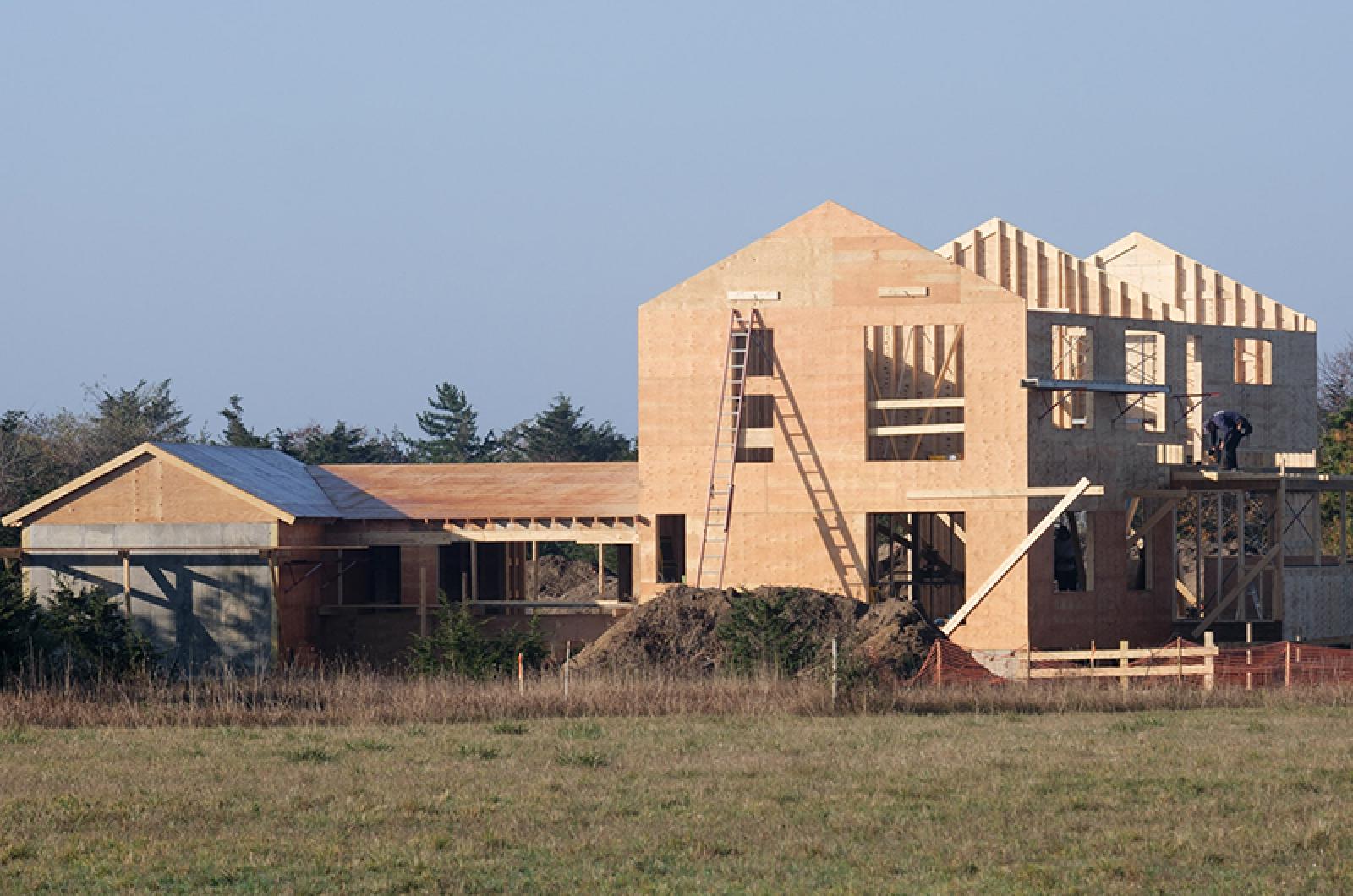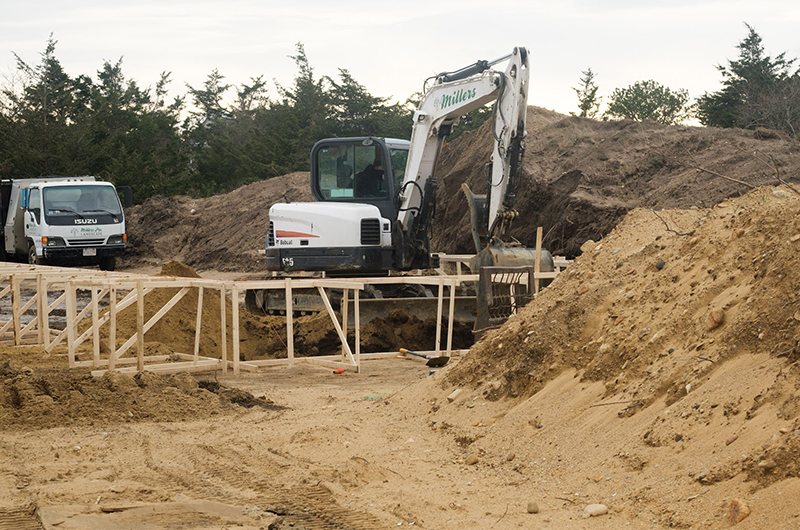Late last month, with coronavirus cases surging on the Island and the Thanksgiving holiday fast approaching, contractor Gustavo Batista saw an opportunity.
Boards of health in every Island town had just voted to reinstitute strict regulations on construction and landscape sites after reporting a high percentage of cases in the trades. The new rules included a 10-worker limit and the presence of a job site safety officer at all times.
The regulations were complicated enough to understand for strong English-language speakers, and among other things involved a nearly 300-person Zoom meeting with health agents, building inspectors and the Island construction community.
But for the Island’s Brazilian population — a large portion of whom have careers in the trades, do not speak English and have been hit particularly hard by the pandemic — the regulations presented a new, often inscrutable array of challenges.
And because no Island health departments have Portuguese speakers, communication was difficult, if it happened at all.
That’s why, late on the eve of Thanksgiving, Mr. Batista — who owns Right Angle Construction on the Vineyard and is Brazilian — wasn’t relaxing in anticipation of the holiday. Instead, he and other members of the Brazilian community, including his friend and painter Fabricio Sornas, went straight to work, deciding to host a meeting of their own.
With the help of Martha’s Vineyard Builders Association president Newell Isbell-Shinn, they provided 90 minutes of two-way Zoom translation services for more than 30 Brazilian contractors and tradespeople who had questions regarding the pandemic, community spread, the new regulations and best-practice coronavirus protocol. The meeting initiated an unprecedented opportunity for an essential, but often overlooked community.
“I pulled the trigger on it, because, one, I’d heard that cases among the Brazilian community were increasing,” Mr. Batista said. “And then I did that on Wednesday too, on purpose, because we knew on Thursday would be Thanksgiving, to prevent some gatherings.”
“Brazilians,” he added. “Like everyone, we like to gather.”
But the meeting wasn’t just for Brazilians. Mr. Batista, who is on the communication board for the builders association and served as moderator, decided to invite the Island health agents too. Expecting them not to come, considering that the meeting was late on the Wednesday before their first holiday in months, he was surprised by the turnout.
Nearly all of them showed up. Building inspectors came too, as well as hospital officials and employees at Martha’s Vineyard Community Services.
“I didn’t think that we were going to get the health agents or building inspectors involved,” Mr. Sornas said. “Instead of a 15-minute meeting, it ended up being an hour and a half, which was great.”
On the eve of Thanksgiving, it gave Island health agents their own opportunity to speak directly to a community they had struggled to reach — an opportunity for which they were all thankful.
“I was humbled by the experience,” Edgartown health agent Matt Poole said. “It was really, really rewarding, with good engagement. And it just goes to show, this was a day before Thanksgiving . . . they initiated it . . . these guys are pretty amazing in just their willingness to do all the hard work.”
The Island’s Brazilian community — which is its largest immigrant group and has been steadily growing over the past four decades — is now estimated at more than 3,000 people, representing close to a quarter of the Island’s winter population. While communication channels between Island towns and the Brazilian population have strengthened over the decades, particularly through school programs, the early days of the pandemic laid bare some of the longstanding challenges, especially in the occupational trades like construction, landscaping and domestic work. It was a struggle to quickly find translators for early public health orders focused on those industries, and traditional means of outreach — through newspapers, press releases and town websites — proved fruitless.
To make matters worse, the difficulties of navigating a global health crisis as an immigrant community were compounded by a monthlong work shutdown in the trades, with the economic impact of the pandemic leaving many Brazilians on the fringes.
“It was brutal,” Mr. Batista said. “I can’t afford to have everything stop again.”
The Island Brazilian community is also far from monolithic, with broad linguistic, cultural and racial diversity. Even Mr. Sornas, who has a smaller painting company and didn’t have to fully stop work, said the pandemic’s unknowns were still a challenge for his employees.
“I think it is more about the uncertainty,” he said. “My main concern is not for myself. It is for my workers. Can they go three weeks without working? I am always telling them, make sure we save money wisely. I was reaching out to them every week to make sure they had money to put food on the table.”
But as fall arrived and cases began to surge in the construction community, a work shutdown stopped looking like a figment of the past and more like a reality of an uncertain present. Mr. Batista and Mr. Sornas — both used to working with their hands — decided to take matters into them.
“My personal concern was we were hearing about a tremendous amount of spreading,” Mr. Sornas said. “We had jobs where four of five people were getting a positive test, and the whole company had to shut down.”
“People knew what was going on,” Mr. Batista said. “But what I saw was that there are still a lot of questions to be asked, and answers that people don’t know. Covid caught us in a really weird way. We never experienced that. It’s all new, and changed our daily routine.”
The health agents, for their part, also started to expand outreach, organizing a meeting with Brazilian clergy on the Saturday before Thanksgiving. Mr. Poole said the meeting went well, but that it only went so far; like every community on the Island, not everyone goes to church.
In response, members of the Brazilian community coordinated with health agents to develop additional messaging strategies, focused on social media platforms like BRAZUKADA, a Portuguese-language Facebook page, and Instagram. Mr. Batista created specific pages for both, and Mr. Sornas provided his phone number to anyone who had questions about the virus or new rules, as well as to the health agents if they needed help. Leah Palmer, the schools ELL coordinator, connected everyone with translators — nine of whom were newly trained this summer through the Community Ambassador Partnership.
Instead of press releases, health agents were told to focus on short, one-minute videos. And instead of trying to cajole people into following public health guidelines, agents were told that it was okay to speak from a position of authority.
“It’s one thing to have me, or Gustavo, or Newell speak,” Mr. Sornas said. “When you have a health agent, or a contact tracer, or a building inspector, someone who is working with people on a daily basis . . . that’s different.”
The meeting served as a culmination of those efforts, with builders asking pointed, specific questions about quarantine protocol and testing, and receiving answers from health agents and others in their preferred language through live, two-way translation.
“We had people asking some very, very interesting questions,” Mr. Sornas said. “It was tremendous. I was very pleased.”
For instance, if a crew member tests positive, do all other employees need to get tested, or do they just quarantine? In simplified terms, the answer was “Depende.” Or if an employee tests positive, and that employee is on day seven of their 14-day quarantine but receives a negative test, can they go back to work? Even more simply: “Não.”
Health agents were pleased too.
“We had tried [with regard to outreach], but we were pretty much ineffective,” Mr. Poole said. “And now we got traction. We finally got movement after 15 or 20 years. And [coronavirus] absolutely triggered that. Everyone is now paying attention. We’re more motivated. They’re more motivated. And now there’s a common topic, a common theme.”
And even with a vaccine on the horizon, that common theme — the virus — doesn’t appear to be fading. A meeting specifically focused on domestic workers is scheduled for 7 p.m. Thursday evening, with health agents planning to attend. And Mr. Sornas and Mr. Batista said they planned to host another contractors meeting before Christmas, hopefully with even higher turnout.
Before the clergy meeting started last Saturday, Brumelha Magri, a transition/family engagement coordinator, as well as recovery coach and Portuguese interpreter for the regional high school, read a powerful message regarding the virus’s impact on the Island’s immigrant community, requesting that all on the Vineyard extend compassion rather than divisiveness.
“Viruses don’t choose a race, but they do target people without resources,” Ms. Magri said.
Mr. Batista echoed her sentiment.
“We are all in the same boat,” he said. “That’s a disease, that doesn’t matter if you are American or Brazilian. Either of us could die. That’s why, the more we do for prevention, the better.”








Comments (2)
Comments
Comment policy »